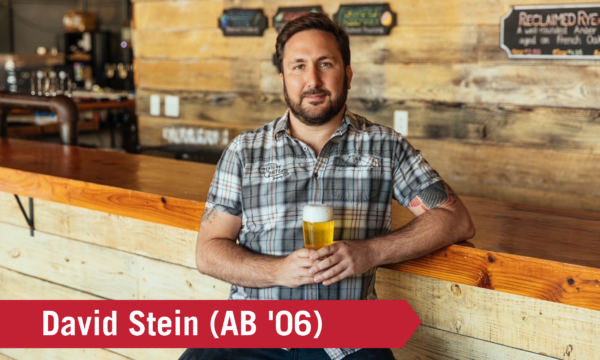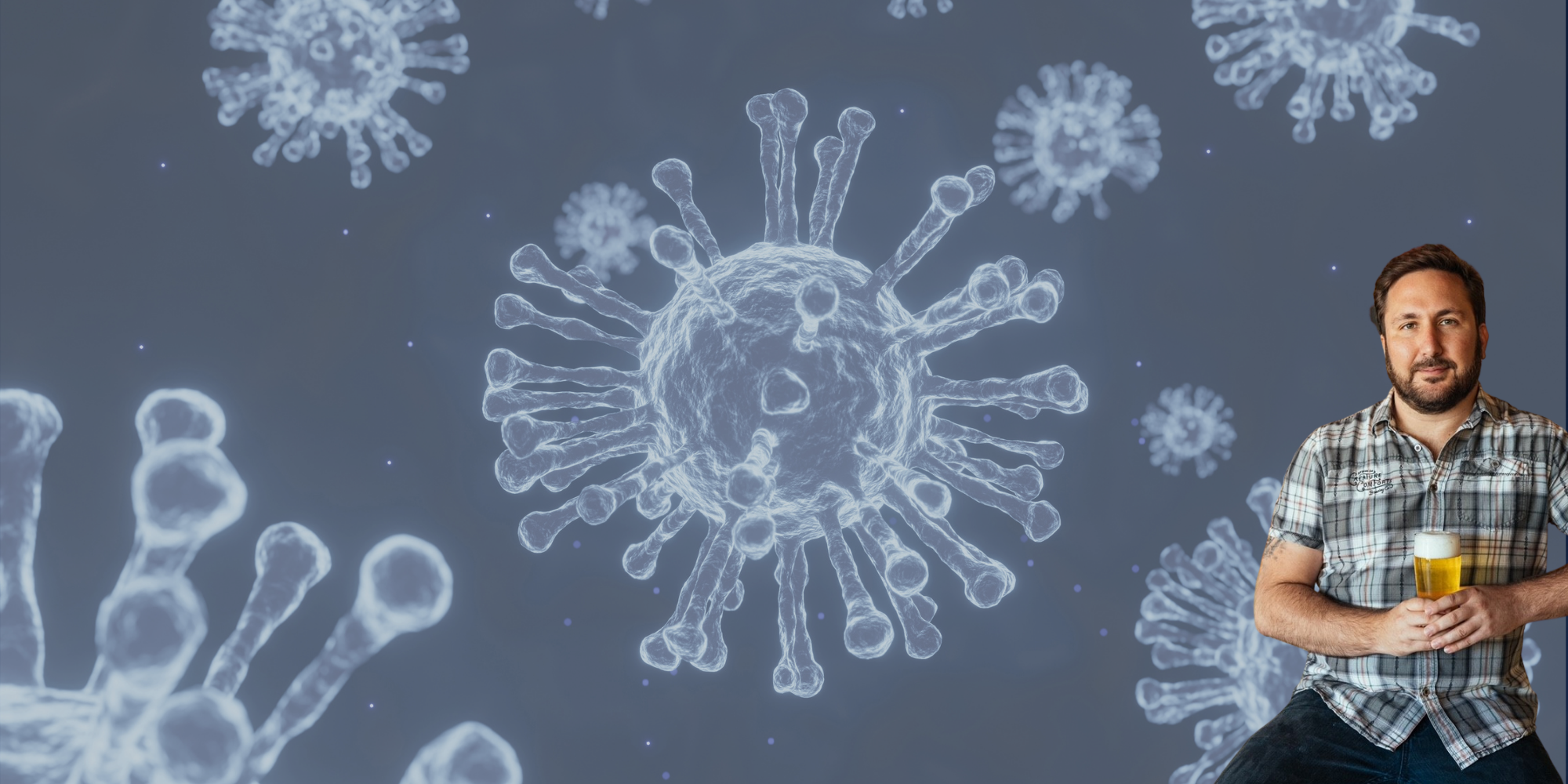Athens-based artisanal brewery Creature Comforts is one of the hottest new businesses in the U.S., with a 2675% jump in beer sales since its April 2014 opening, plans for a brewery in Los Angeles, and a cinematic star turn of fan-favorite Tropicalia in Avengers: Endgame.
Creature Comforts, however, is not just in the beer business. SPIA Alumnus David Stein (AB ’06, AB ’06), Chris Herron, and Adam Beauchamp founded a company determined to be a good neighbor.
In 2015, they launched their flagship community impact program, the Get Comfortable campaign, which leverages the resources of local businesses to fund agencies and nonprofits addressing Athens’ most pressing needs. Since then, this and other efforts have raised a total of over $2 million in value for partnering agencies, including Advantage Behavioral Health, The Athens Area Homeless Shelter, The Athens Community Council on Aging, The Ark, Mercy Health Center, and Chosen for Life Ministries.
This foundational community perspective meant that when COVID struck in March, it impacted Creature Comforts on every possible level.
“I was in Australia at the time on business to select our hops: it’s hop harvest in the southern hemispheres in March,” said Stein. “The week leading up to March 13th was very weird. Information was vague and all over the place. Me and my business partner, Adam, were about to get on a plane to Tasmania [but] changed our flight and on March 13th flew home. And I think it was the right call. We were scared we would get stuck there indefinitely. Tom Hanks got COVID while we were there, and everything was just so weird and scary.”
Getting back to the U.S. turned out to be the easy part, as the partners were immediately faced with the survival of its business, employees, and the community at large. As the nation descended into quarantine, the first order of business was communication with staff, who were torn between deepening national fears and their loyalty to the brewery and its mission. “We had to shift a lot to virtual. We decided really quickly that everybody who could stay home would be able to. We felt we should help promote the idea of self-quarantine while the world figured out what was going on.”
They shut down the taproom completely in March and reassessed. To keep some of their 30-person taproom staff working, they opened a contact-free drive-thru, Monday-Friday 1-6 PM.
Even though the once-tiny operation now boasted over 100 employees, they did not lay off a single person. Between drive-thru proceeds, small business loans, and sheer stubbornness, they paid staff through the three-month closure. “It was a big deal for us. And even if we were losing money, I’m just happy that we were able to keep our staff on board.”
 In the brewery’s manufacturing facility, the first priority was safety, a long-time focus of the company, which employs a full-time safety lead. They researched best practices and instituted masks, distancing, and capacity limits. Then came a tremendous shift in production itself. “As bars closed, [the demand for] draft beer disappeared. We had to shift all of our liquid into more cans headed to grocery stores and package stores.” Thousands of gallons of product already packaged for draft distribution spoiled. Meanwhile, with the demand for canned beer skyrocketing, the industry struggled with a nationwide shortage of aluminum cans.
In the brewery’s manufacturing facility, the first priority was safety, a long-time focus of the company, which employs a full-time safety lead. They researched best practices and instituted masks, distancing, and capacity limits. Then came a tremendous shift in production itself. “As bars closed, [the demand for] draft beer disappeared. We had to shift all of our liquid into more cans headed to grocery stores and package stores.” Thousands of gallons of product already packaged for draft distribution spoiled. Meanwhile, with the demand for canned beer skyrocketing, the industry struggled with a nationwide shortage of aluminum cans.
In April, as panic-buying and the supply-chain effects of the pandemic worsened, the nation suffered a severe shortage of hand sanitizer, and Creature Comforts saw an opportunity to step up. Other breweries and distilleries were pivoting from beer production to hand sanitizer, and Stein’s team joined in. They repurposed their brewery equipment and workspace, purchased some isopropyl alcohol in bulk from local suppliers, slapped custom labels on recycled beer bottles, and “Clean Creature” was born.
They manufactured hundreds of these 500mL bottles, priced at $8.49 each, and sold them in the drive-thru along with the beer. For every two bottles purchased, they donated a bottle to local hospitals, nonprofits, and struggling restaurants and bars. “We’ve we just tried to help anybody who really needs it. We provide it, and the people who could pay for it hit the drive-thru . . . That helped our beer sales, because they were like, ‘let me also get a six pack of Tropicalia.’”
Though Clean Creature production stopped when hand sanitizer supply returned to the market, it helped generate a new direction for the brewery. At the time, Creature did not have the designation of a distillery, and hence could not access ethyl alcohol, which was more readily available. “Sourcing the bulk ingredients for sanitizer was actually difficult. We got a distillery permit thinking that we might want to continue [if another shortage occurs].” This permit gives them the option to explore the production of spirits in the future. “We don’t have the bandwidth at the moment, but maybe next year we might start experimenting with making gin and other cool spirits.”
By June, with COVID cases falling and quarantine restrictions lifting, Stein’s team began planning how to inch back towards normal operations. The taproom reopened, but with limited outdoor seating only.
“We luckily have such a nice and sizable outdoor space,” he said. People could be safe and socially distanced, and we worked with our staff to come up with a whole new flow and new policies.” Table service replaced ordering at the bar, and masks were required up until patrons were seated (to be replaced when a server approached). Hand sanitizer was everywhere, customers swiped their own credit cards, and the staff committed to diligent and continuous practices of disinfection.
Patrons were delighted to have a safe place to congregate and enjoy the fresh air. The inside of the taproom did not open until September, and then in a very limited capacity. The brewery’s huge exhaust system turns over the air every five minutes, and the now-routine outdoor safety measures continued inside. “We would never have done it if we didn’t think we could do it safely.”
Community safety and wellness is the consistent priority for Stein and his partners. The brand began as a manifestation of its founders’ philanthropic visions. ““I did a lot of work before opening Creature Comforts with the refugee community in Atlanta, and I volunteer a lot with non-profits,” said Stein. “I had a personal desire to find partners and [make giving back creatively] a part of our business plan.”

